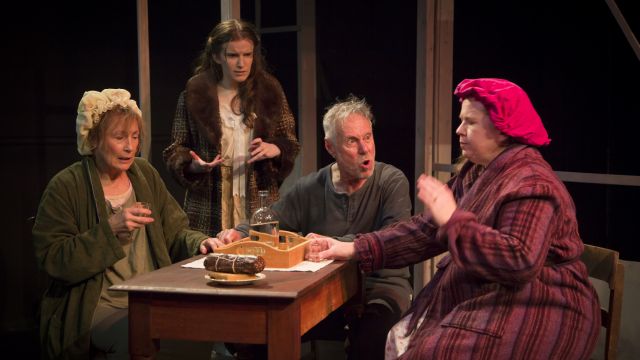The Suicide
Whilst the date that The Suicide was written may be disputed, there is no doubt that it was banned by Stalin, and its author, Nikolai Erdman, certainly paid dearly for his craft by being sent to a Siberian work camp for 20 years. In fact, the play was first performed in Sweden in 1968. Ironically, it is now regarded as one of the finest plays to come out of Communist Russia.
Move forward more than 50 years and The Suicide was first translated into English by Peter Tegel and was premiered by the Royal Shakespeare Company in June 1979. It later opened on Broadway in October 1980 and closed after 60 performances.
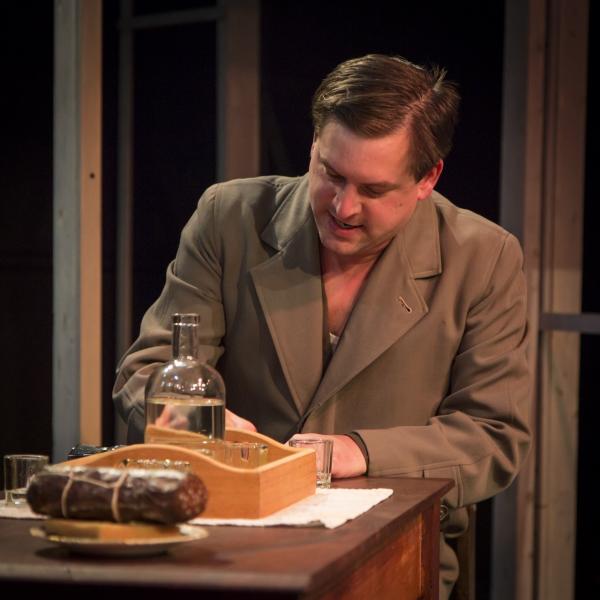
Described as a satirical comedy, it is somewhat of a ‘stretch of imagination’ in the current times of war, to imagine what we have come to expect from the stereotypically dour Russian culture of hardship and misery being penned as a very funny comedy. Indeed, it is equally unexpected to experience a comedy about a collaboration of people encouraging someone to commit suicide, particularly to promote their own causes. Both assumptions are incorrect, it is a funny play.
Presented by Red Phoenix Theatre, and directed by Brandt Eustice, this is a satirical piece, and as Eustice explains it, is designed to encourage the audience “question its purpose”. For my part, in the 2 hours and 50 minutes, I found myself doing that a number of times.
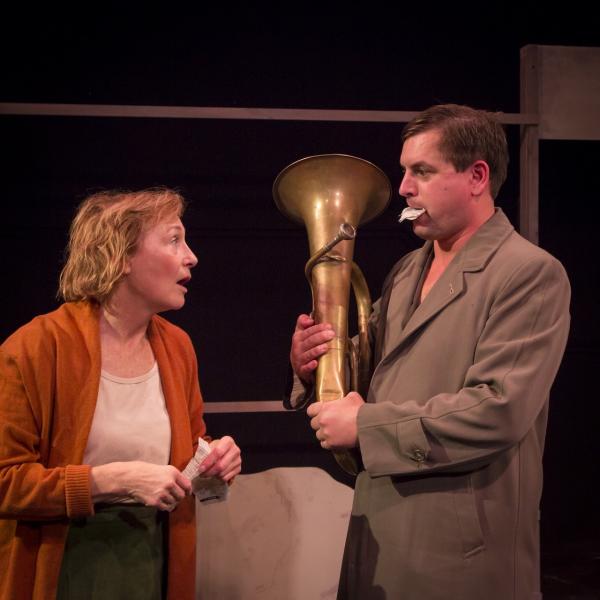
Set in a Moscow tenement, a young, unemployed man, Semyon, a challenging role played by Joshua Coldwell, decides to solve to his problem by learning to play the tuba. Of course one could be forgiven for thinking that learning the tuba was enough of a taxing challenge. His lack of tuba talent ensures a dismal failure, so he believes, through his lens of misery, that all he has left is suicide.
His neighbour, Alexander Petrovich, played with exquisite finesse by Geoff Revel is one of the colleagues who has missed the message of Stalin’s communism about the proletariat sharing and supporting each other, and decides to exploit Semyon's desolation and plight by promoting his intended suicide to several bidders. Each plans to capitalize on Semyon's death to the furtherance of their own individual causes or self-aggrandisement, and enthusiastically encourage it.
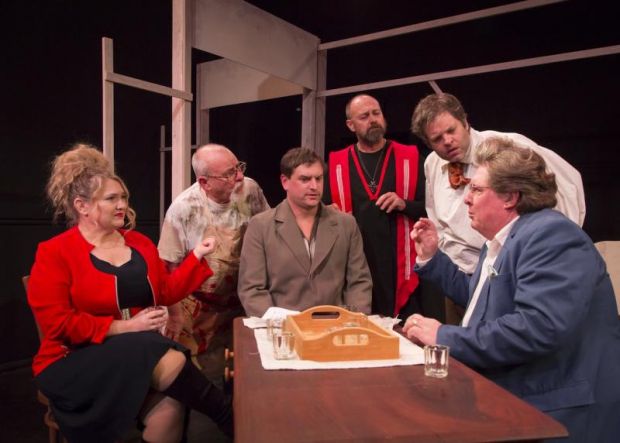
The Intelligentsia, represented by Aristarch and played convincingly as both slimy and manipulative by Michael Eustice, is the first to approach him. Subsequently, a roll call of characters representing the diversity of society attempts to influence him and in doing so, reveal the worst side of their personalities and it is here that much of the humour is developed.
This production has a cast of 17 actors, many with extensive experience, and a highly skilled 14-person production team. In the spirit of a repertory ensemble, both cast and crew collaborated and seamlessly undertook scene changes efficiently and quickly. Of note was some very creative lighting by the patriarch of excellent theatre lighting, Richard Parkhill, ably operated by Henry Ferguson, who despite being a younger crew member is showing skill beyond his years. Kate Prescott’s set design was minimalist, ensuring that the play was the star and with a large cast, everyone and everything could be seen.
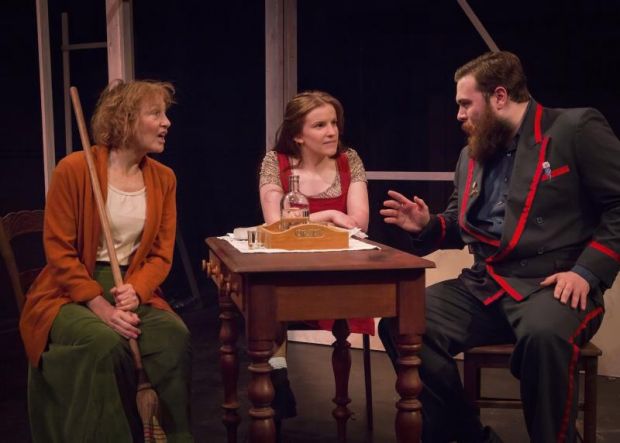
Costumes are often used to create a sense of period, character and status and in this play it is a melange of many things, but there is no clear coherence. Whilst shawls aplenty gave us peasants, costumes varied from modern to period style without a style that added meaning to the play.
With a large cast and an unusual Russian piece, accent consistency is a challenge and given the diversity of characters, logically there are differences. Accents vary from very broad Australian to ‘Russianesque’, and for a couple of characters, English regional country lane. Sharon Malujlo ‘nailed’ both the accent and her development of character as Semyon’s mother in law. She is expressive and nuanced, using pace particularly well.
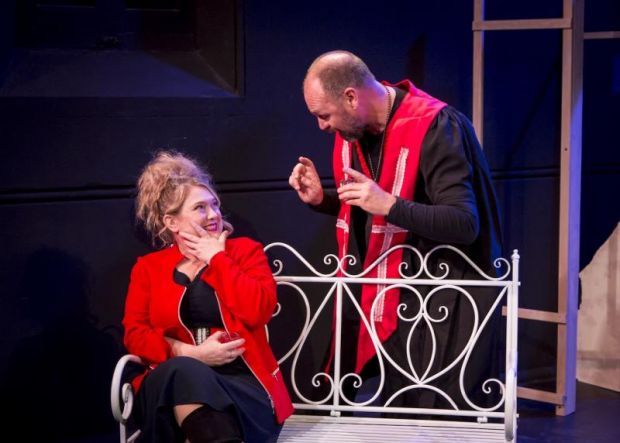
The role of Semyon is one that needs an actor with Coldwell’s gravitas. His attempted suicide scene is joyful and quirky and shows his expertise with timing and audience engagement. If there is a criticism, it is that at this stage, there is little light, shade and subtlety, so we have lots of frenetic, loud dialogue where there are some opportunities to see the many facets of this heroic character.
At this early stage the director’s comments about performances being heightened and broad is still settling to a level where there is balance between actors rather than disparity. With some it is, of course, deliberate. Nicole Rutty’s character Cleopatra is a purely comedic interlude designed to provide a vehicle for many of the terrific ‘one liners’ and a colourful contrast to other characters. Her discipline and stage presence, in character, is a delight to watch. Some characters are still working on subtle business as opposed to upstaging, but the sense of ensemble is strong.
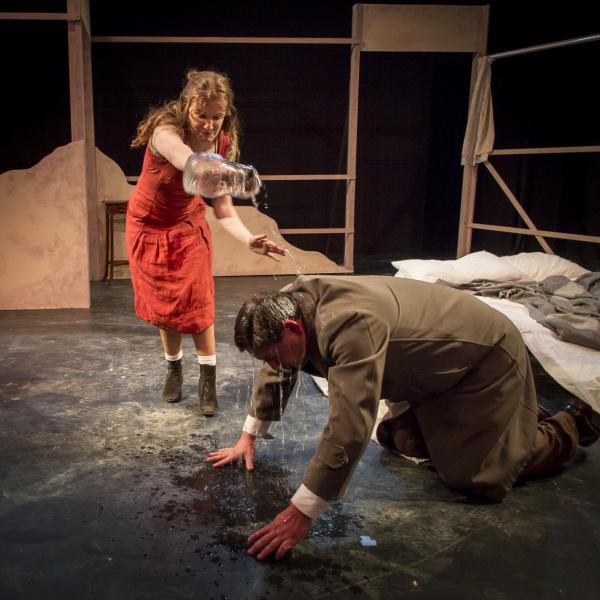
This is indeed another example of Red Phoenix bringing interesting, different plays to Adelaide. It is an excellent example of what seems to be a simple story with a very sophisticated meaning.
Jude Hines
Photographer: Richard Parkhill
Subscribe to our E-Newsletter, buy our latest print edition or find a Performing Arts book at Book Nook.

